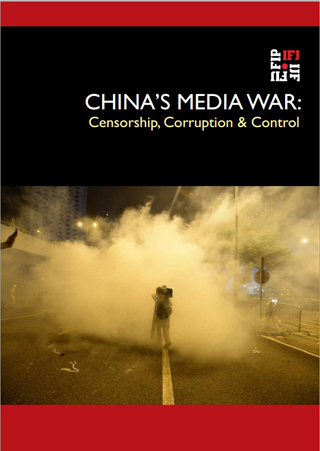The International Federation of Journalists (IFJ), a major international trade union for journalists, has issued its annual report entitled “China’s Media War:
Censorship, Corruption and Control”, which focuses on the freedom of journalism in China.
The report states: “Since Xi Jinping became President of China in March 2013, media freedom has declined drastically, particularly online”. It also notes that none of the self-immolation protests or other forms of demonstration in Tibet was reported in mainstream media in Tibet or China. The report expresses concern over whether court cases related to protests were conducted with due process of law, as they are always held in closed court.
The IFJ report also found that permission for journalists to report in Tibet is rarely given, that interviewing locals is risky or impossible and that when the Chinese government does invite foreign journalists to Tibet, the trip schedule is closely controlled by the government.
The International Federation of Journalists initiated a programme in early 2008 to monitor and report on press freedom and violations of media rights in China in the lead-up to the Olympic Games in Beijing in August of that year, and have continued to monitor the situation. The report states that the IFJ applauds the courage and tenacity of journalists reporting on China in 2014 and urges the media to remain vigilant and defend press freedom, despite the very difficult conditions under which it is forced to operate.





 Print
Print Email
Email